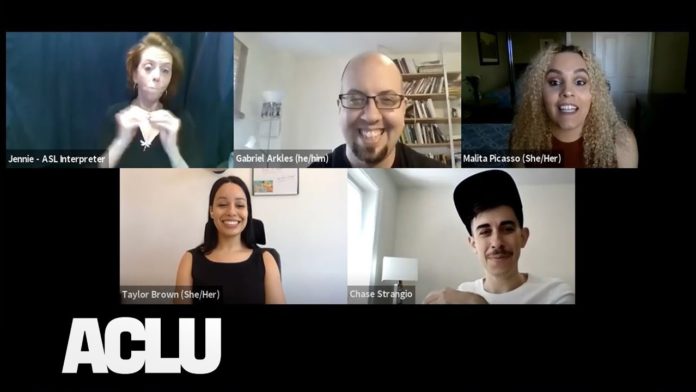Many years ago, very early in my own transition, I was listening to a drive-time talk show on KFI in Los Angeles. The topic at hand was a high school college teacher who had just come out as a trans woman.
The host was very much opposed to this, citing how disruptive she would be in the classroom and inferring that she would be traipsing around the classroom in tight dresses and feather boas.
I would be the only trans person who called in to defend this teacher, challenging this image the host was presenting. I won’t claim that I made much headway with them, but at least it was more headway than may have been had without a trans voice in the mix.
It is now more than two decades past that talk show — but I feel like we’re still in the same place we were then. The same stalemate exists now.
A few weeks ago, the Supreme Court of the United States handed down a landmark decision, helping to cement transgender employment rights. Yet, as trans journalist Gillian Branstetter noted, almost none of the coverage about the decision included trans voices. Not even the trans members of the legal team — Gabriel Arkles and Chase Strangio — were called in for comment.
This isn’t an anomaly.
In the days prior to the decision, the Department of Health and Human Services moved against trans healthcare. In the days after, similar moves were put forth from the Department of Housing and Urban Development. Not only were trans voices not heard, but mainstream coverage was exceedingly limited.
You do not see transgender people reached out to comment in the majority of trans news stories, even in those rare cases such a story is picked up. This seems exceedingly prevalent in cases of anti-transgender violence and murder. While I have spent more than two decades on the subject, I’ll say up front that they don’t need to come to me — but they should be coming to someone: local trans leaders, trans friends of the deceased, or at least someone who can provide a trans context to the story.
Instead, the lion’s share of these tales are based on a police report. These reports often misgender and misname the deceased, stripping away an identity that is key to the story of their life and their death.
The best option, of course, would be to have a trans reporter who could give you an angle on the story that few would be able to grasp, adding nuance and information that could otherwise be invisible to a non-trans observer. Sadly, such nuance is often viewed as “biased” before we ever get a chance to touch fingers to keyboard.
I do not believe it is bias to let a transgender person write a story that details and impacts trans people any more than a reporter in a local community is biased due to their involvement in that community.
Instead, the non-trans view is presented as an unbiased one, but it ironically biases the story with an inherent lack of informed and lived experience.
Yes, there is a non-trans bias. It is akin to the radio story I mentioned above: if you lack the experience of what a transgender or nonbinary person is, then how do you present such experience? What informs your views of trans lives and livelihoods?
Can you imagine telling an accurate story about transgender people when your only frame of reference is Caitlyn Jenner’s coming out? What if your only touchstone is Drag Race or Rocky Horror?
How would any of this help frame a story about a trans man or a nonbinary person or, quite frankly, anyone? If you are not trans, and you do not know trans people, what are you doing to broaden your knowledge of transgender people?
Add to this that there are those who are actively seeking to muddy the waters when it comes to trans narratives. The religious Right, as well as some faux feminist groups, are seeking to paint inaccurate, disingenuous images of transgender people and out issues. They actively want to control the narrative, painting transgender people as inherently untrustworthy while providing questionable sources and data to bolster their own position.
How do you make sure your sources aren’t so broadly biased, especially when they may be deliberately trying to craft a false narrative?
All of this frustrates me. So many will listen to misinformed, wrong or deliberately deceptive tales of trans lives, even while those of us who are trans or nonbinary are right there, ready and willing to share our legitimate experiences and viewpoints.
I recently heard about the formation of a Transgender Journalists Association. This seems like a solid first step towards combating the lack of accurate transgender coverage. At current, the group still seems to be building, but has released a fairly solid set of guidelines for covering transgender stories. While I am not yet a member, I am definitely interested to see where this organization goes.
I feel, though, it will take more than just this one group. It will be on all of us who might be willing to speak up to push to be heard. We all need to be willing to offer up our take.
Moreover, it will also be on the hordes of non-transgender people to listen and to realize that transgender and nonbinary voices need to be heard by the community at large. We’re not hard to find. We’re right here.
Let us speak.
Gwen Smith is a pending member of the Transgender Journalists Association. You’ll find her at www.gwensmith.com
